第183章
"I rejoice in you, Ibrahim, and expect you to become a hero," cries Mohammed. "Continue. You were resolved to defy the waves--""Yes, father, and I did learn to make the waves obey me, and Ibecame the best boatman in Praousta. I also learned to dive, and no diver could surpass me. To prove what I say, I have brought you this keepsake. I brought it up from the depths of the sea; it was tied up in a bag. I dragged it to the shore and opened it. And what do you suppose it contained, father? Only think, a skeleton! As these were the first things I had taken out of the deep as a diver I have brought you something out of the bag as a keepsake. Here it is, I--lay it at your feet."
"From the depths of the sea? " repeated the viceroy, with pallid cheeks. "Tell me, Ibrahim, were you diving off the shore of Praousta?""Yes, father. You know the shore is steep, and the sea deep, close in to the beach. There I dived and found the bag, with which I swam to the shore. The bag contained bones, and also that which I have brought you.""A bag that contained a skeleton?" repeated Mohammed, with quivering lips. "And what is it you have brought me?""A tress of hair--a tress of long, black hair. It must have been a woman that was cast into the sea in the bag."Mohammed does not take the package from his son's hand, and Ibrahim lays it at his feet and looks at him with astonishment. He is completely changed; his cheeks are pallid and his eyes dim. Ada also observes this change with dismay, and calls her sons to her side.
Aroused by her voice, Mohammed awakens from his stupor, and waves his hand as if to ward off some spectre.
"And what have you brought me, Ismail?--and you, Toussoun?""We have also brought you keepsakes from Cavalla," they reply. "We endeavored to make of ourselves what you were when a boy. We were told that you had been a famous climber, that no rock was too high, and the entrance to no cave too narrow, for you. And we discovered a large cave down by the shore, near Praousta. It was necessary to creep through a long, narrow passage to get into it, and what do you think we found there? It seemed as if people had lived there--there were cushions and all sorts of things scattered around on the floor.
Oh, we often enjoyed ourselves in the cave, singing songs, and eating fruit we had taken there with us. However, when we visited the cave for the last time, we determined, each of us, to bring you a keepsake from it, and here are the things we have brought. I bring you a beautiful little cup I found there.""And I bring you a piece of cloth--a beautiful gold-embroidered cuffei which I found in the cave. It is very handsome, only there are a few spots, as though blood had dropped on it."And, like Ibrahim, the two boys also lay the packages they had brought at their father's feet. He sits there for a moment as motionless and pale as a marble statue, and then motions with his hand toward the door. He cannot speak, he only motions to them to leave the room, and the boys hasten to their mother's side in alarm.
Ada takes them by the hand and leaves the room with them.
Mohammed is now alone with his sons' offerings.
He stares down at them for a while, and then takes up the package Ibrahim had laid at his feet.
He tears it open, and there lies Masa's long, black hair. A cry escapes his lips! It is not the viceroy, not the man, who cries out.
It is the death-cry of his first love!
He presses the hair to his lips, and two tears trickle slowly down his cheeks. His gaze fastens on his Masa's hair in a long, painful glance.
He had often kissed these tresses while they clung to her beloved head. He now kisses them for the last time, and then conceals them in his bosom.
He bends down again and takes up the presents of his other sons.
He remembers the cup well. Masa had often drunk out of it.
He kisses the rim of the cup, the place where Masa's crimson lips had touched; he then carefully places it on the cushion beside him.